Not every hunter has access to swaths of public land or has a bankroll deep enough to drop on land leases, hunting clubs, or other pay-to-play hunting properties. That’s why knowing how to ask permission to hunt private land is an important skill to practice and one that can lead to many new acres to explore. But there’s an etiquette to asking permission to walk and hunt private land, and with these tips, you might just find yourself in prime big game country come next fall.
TL;DR: Gaining access to private hunting land often starts with a respectful ask and continues with long-term relationship building. The best time to reach out is well before hunting season—ideally in winter or early spring—when landowners have time to consider your request. Begin small by asking about hunting small game, shed hunting, or simply walking the property. Always be courteous, professional, and prepared—a handshake or handwritten letter beats a text every time.
Once you’ve secured permission, treat the land like it’s your own: communicate before each visit, avoid damage, leave no trace, and offer thanks through a share of your harvest or small favors. Using onX Hunt tools like Area Shape, Tracker, and Waypoints helps define property boundaries, maintain transparency, and build trust with landowners for future access.
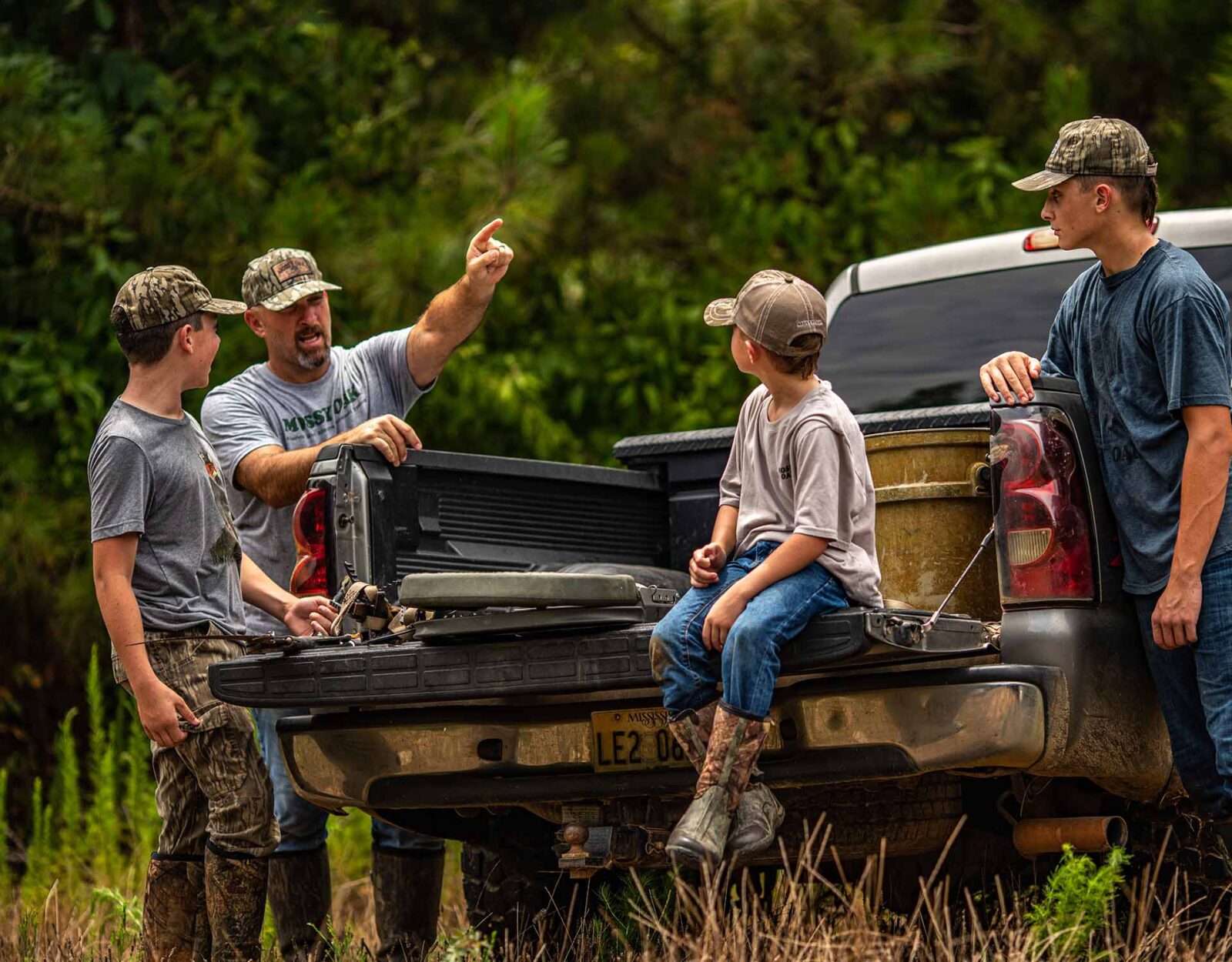
Asking for Hunting Permission
The reality is that when you start asking for hunting permission you will be hearing a lot more of “no” than “yes,” but you can put the odds in your favor by following some simple tips. Remember, you are asking permission to bring firearms or shoot arrows on someone’s private land. There is risk there for the landowner, so showing you’re a responsible person and responsible hunter will be the key to unlocking new hunting spots.
Know When To Ask
If you’re knocking on a door for the first time and it’s hunting season, you’re likely already too late for most opportunities. Of course, there are exceptions, such as traveling through a new state and trying your luck with a few private properties you’ve scouted with onX Hunt.
But if you’re looking to get on a nearby piece of private hunting land this coming year and the years to follow, you should be reaching out in February, not September or later. Showing the landowner that you’re not in a rush or looking for a quick decision is the opportunity to show you value that landowner’s time.
Off-season visits also give you the chance to walk the land, understand the layout, and show respect by not disturbing crops, livestock, or game in-season. Whether you’re looking for permission to hunt this year or trying to build a long-term relationship, early outreach sets the right tone.
If you’re looking to get on private hunting land this coming year and the years to follow, you should be reaching out in February, not September or later.
Know What To Ask
Be clear and to the point, but don’t lead with a big ask. Instead of jumping right to deer or elk, consider asking about smaller game like squirrels, predators, hogs, or turkeys. You might even start with shed hunting or simply asking to walk the property.
This can break the ice and show that you’re low-pressure and willing to earn trust.
Know How To Ask

If you show this landowner that you’re an upstanding, courteous, and respectful individual, that person might unlock more land for you by talking with their neighbors.
The best approach is always a personal one. A handshake beats a text message or cold call every time. If possible, call ahead and set a time to stop by. Dress respectfully, be polite, and if the permission is for your kids, bring them along to show your purpose.
If you have references from other landowners, bring those as well. If you show this landowner that you’re an upstanding, courteous, and respectful individual, that person might unlock more land for you by talking with their neighbors and providing a reference on your behalf down the line.
Hunting Permissions Letter
In some areas, a handwritten letter can go a long way—especially if followed up with a visit. Remember that tax addresses are included for landowners with a Premium or Elite onX Hunt membership. Keep your hunting permission request letter concise: explain why you’re writing, say a little about yourself and your approach to hunting, and include information on how to contact you.
However you choose to reach out, be professional and respectful.
After You’ve Secured Landowner Permission To Hunt
Getting a “yes” is just the beginning. The way you treat their land and the relationship afterward determines whether that “yes” turns into long-term access.
Treat the Land Like It’s Your Own
Respect is non-negotiable. Drive only where allowed, leave no trash, and avoid causing ruts or damage. Always let the landowner know when you plan to hunt and offer to share part of your harvest—many landowners appreciate this gesture of gratitude.
Provide your contact info, vehicle descriptions, and details of who will be hunting with you. Transparency builds trust.
Always let the landowner know when you plan to hunt and offer to share part of your harvest.
Give Back
A great way to maintain a good relationship is by offering something in return. Ask if there’s work you can help with—mending fences, splitting firewood, or even keeping an eye on the property during off-hours. A thank-you note or holiday gift doesn’t hurt either.
Use onX Hunt To Map Your Boundaries
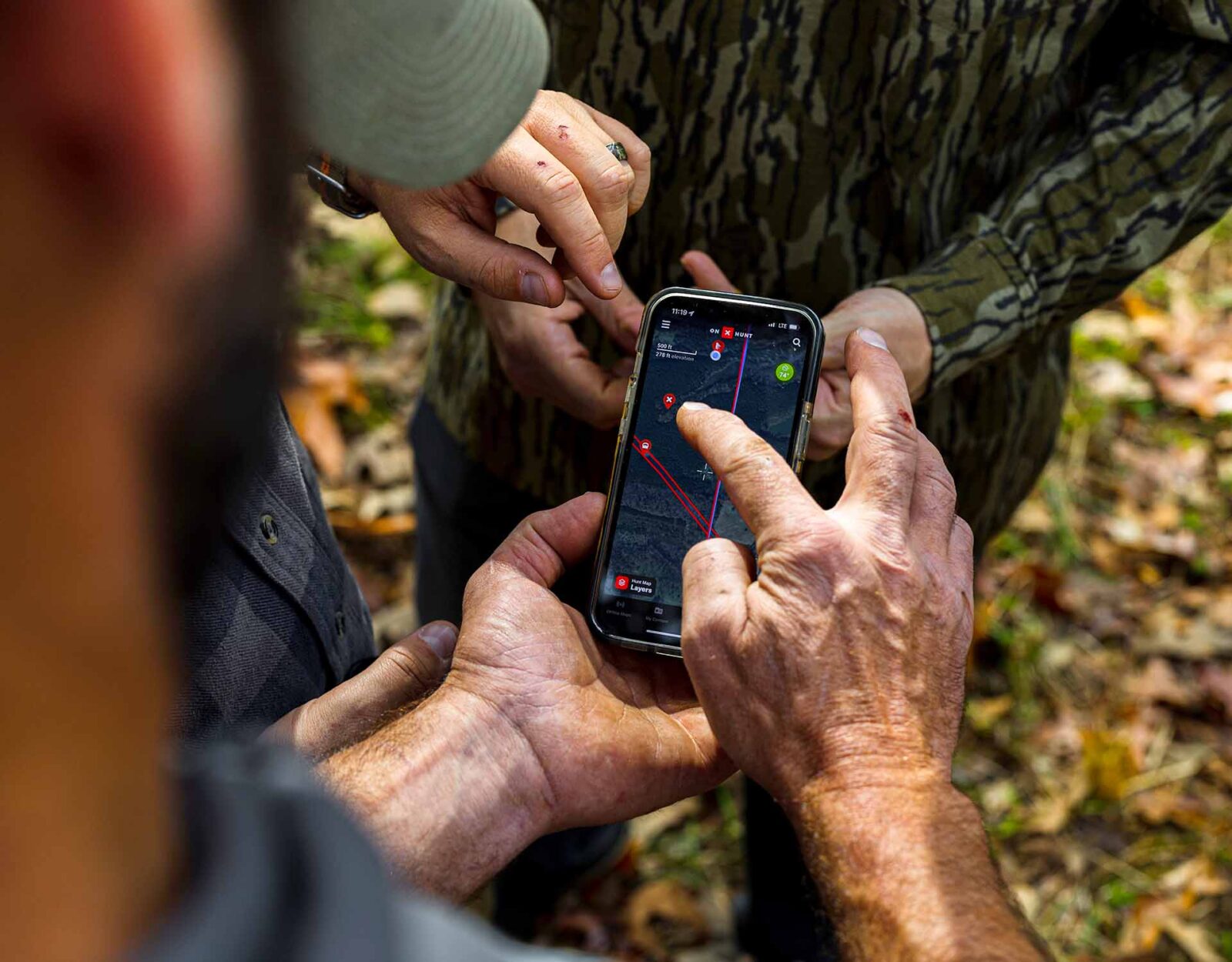
onX Hunt has many tools that will help you and the landowner stay on the same page when it comes to access.
Area Shape Tool
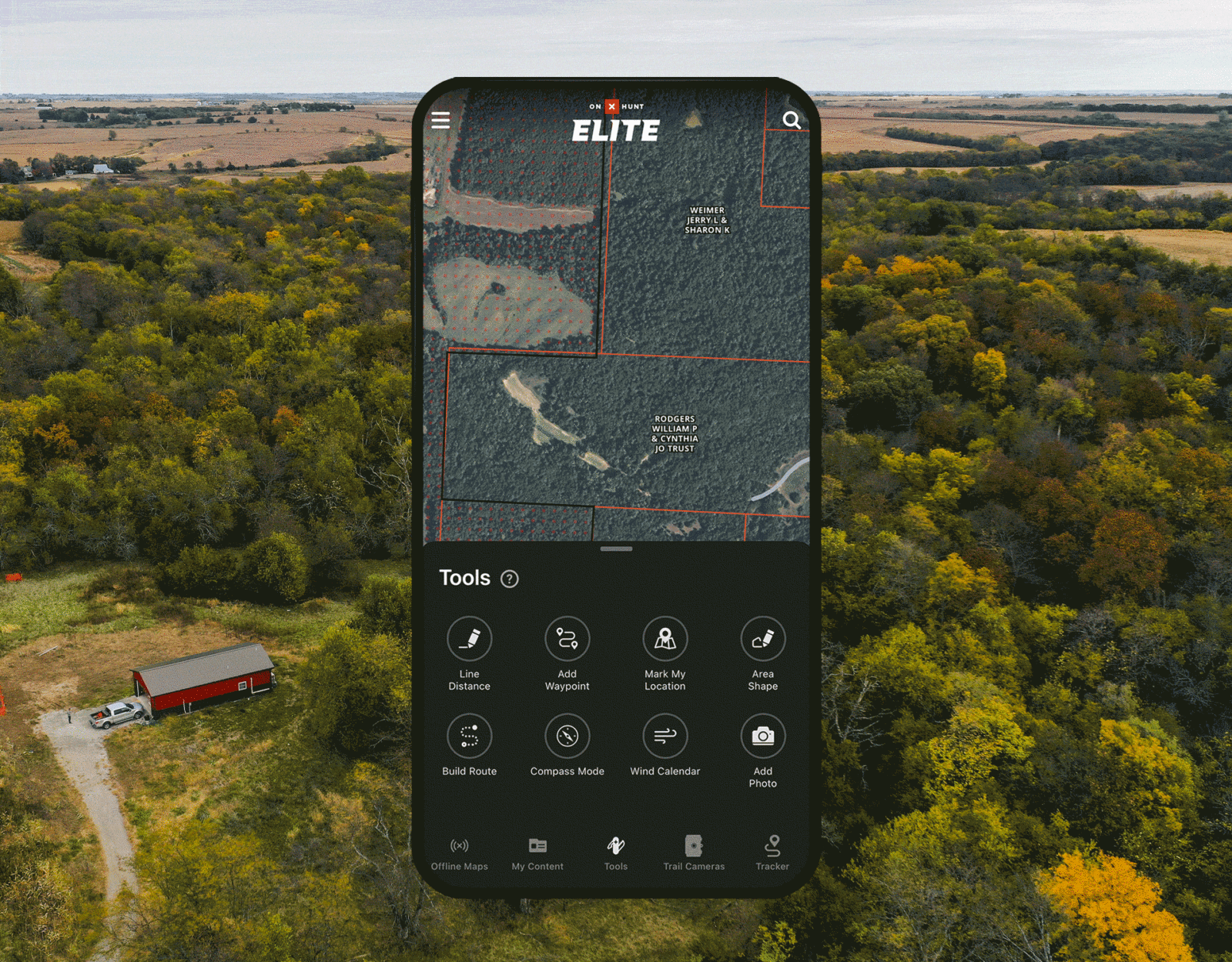
One feature to consider first is the Area Shape Tool. Found under the Tools menu, Area Shape allows you to draw lines of a polygon and save it to your map. It can also be shared with the landowner or your hunting partners.
Drawing an Area Shape is as simple as tapping the “Drop Point” button to drop points in the center of the screen. Once you drop at least three points, a polygon is created. This is most helpful for defining areas to keep to or keep out of while hunting.
Tracker
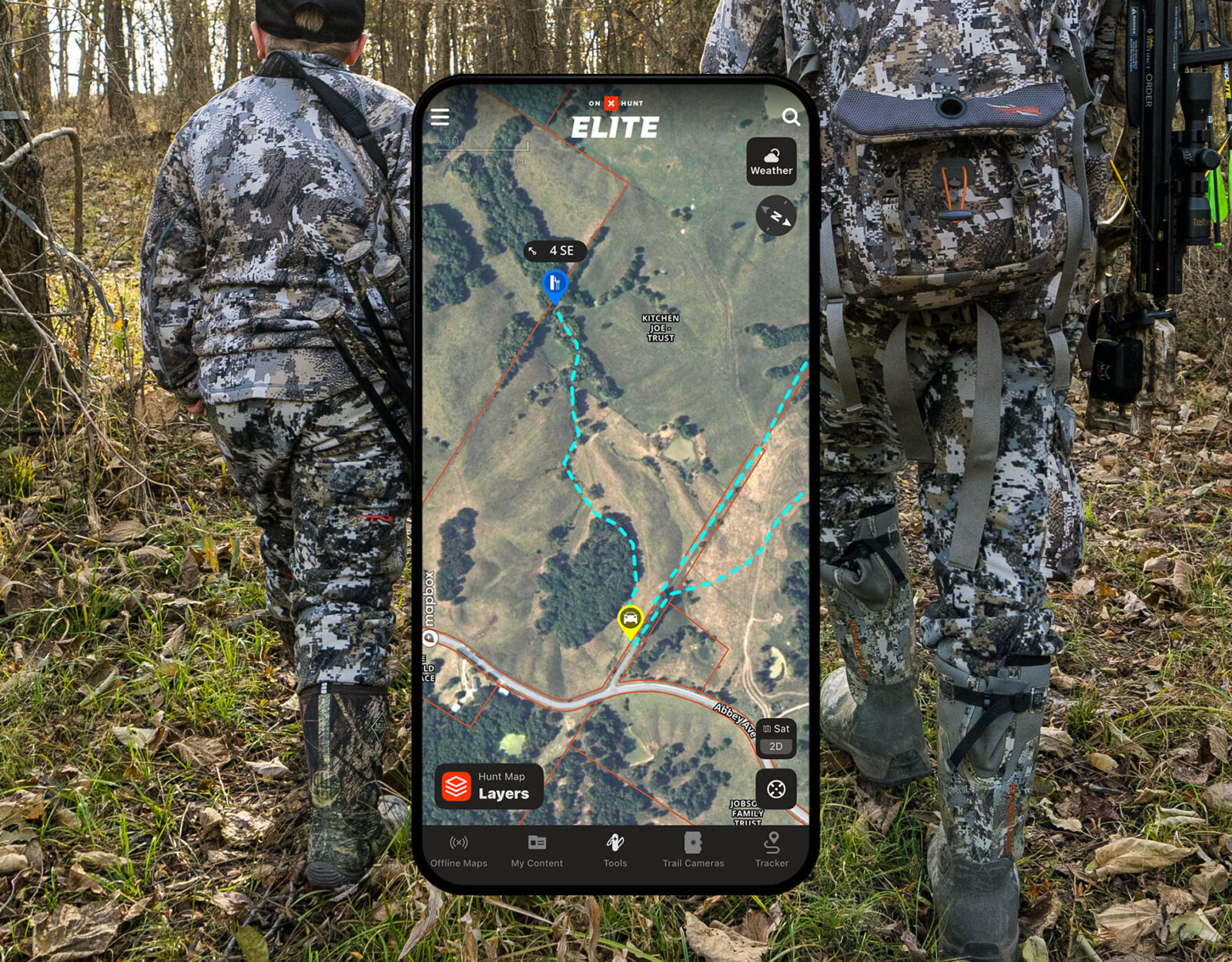
Another great tool to keep yourself on “track” is the Tracker feature. Turn it on while scouting or hunting, and it will track every step you’ve taken. You can save the track and share it with the landowner to double-check you’re staying in the right places. Sharing a track can also increase transparency with the landowner.
Waypoints
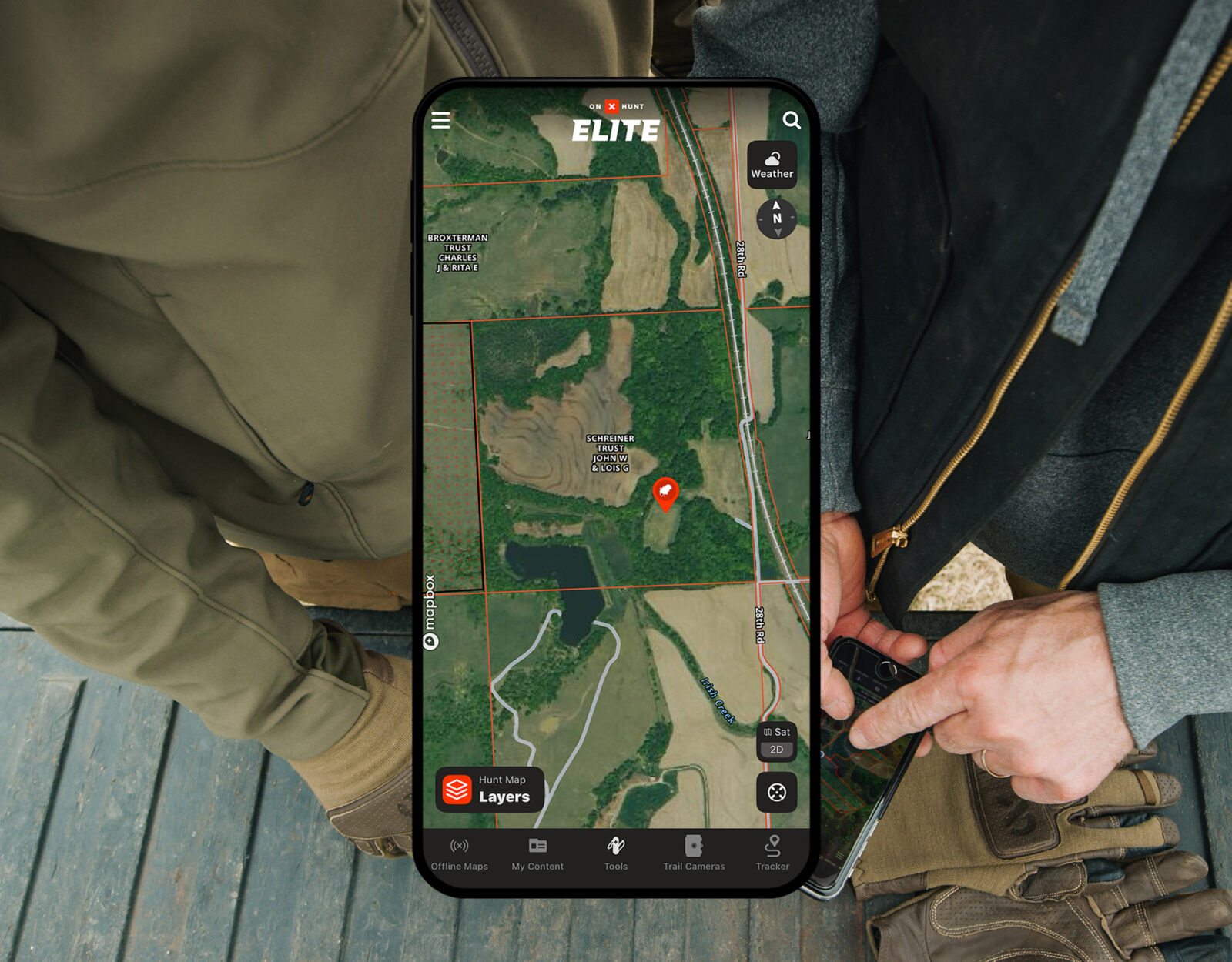
Lastly, a bread-and-butter feature of onX Hunt is dropping Waypoints. If you’re going over the private land map with the landowner before you get in the field, you can ask the landowner if they have seen animals hanging out in a particular area. Mark that with a Waypoint and you’ll know where to go when hunting or scouting.
The Hunter and Landowner Relationship
The more you treat a landowner like a partner rather than a gatekeeper, the more likely you’ll have access for years to come. Consistent communication, responsible behavior, and acts of appreciation are what set great hunters apart and create new opportunities.
FAQs
Reach out months before hunting season—February or early spring is ideal. Asking early shows respect for the landowner’s time and avoids interrupting harvest, livestock operations, or existing hunters during the season.
Make it personal and polite. A face-to-face visit or phone call is more effective than email or text. Dress neatly, be upfront about your intentions, and bring any references from other landowners if you have them.
Keep it simple and genuine. Introduce yourself, explain the type of game and method you’d like to hunt, and emphasize safety and respect for their property. Starting small—like asking to hunt turkeys or varmints—can help build trust.
The Private Lands Layer in onX Hunt shows property boundaries, owner names, and tax addresses—useful for writing letters or planning visits.